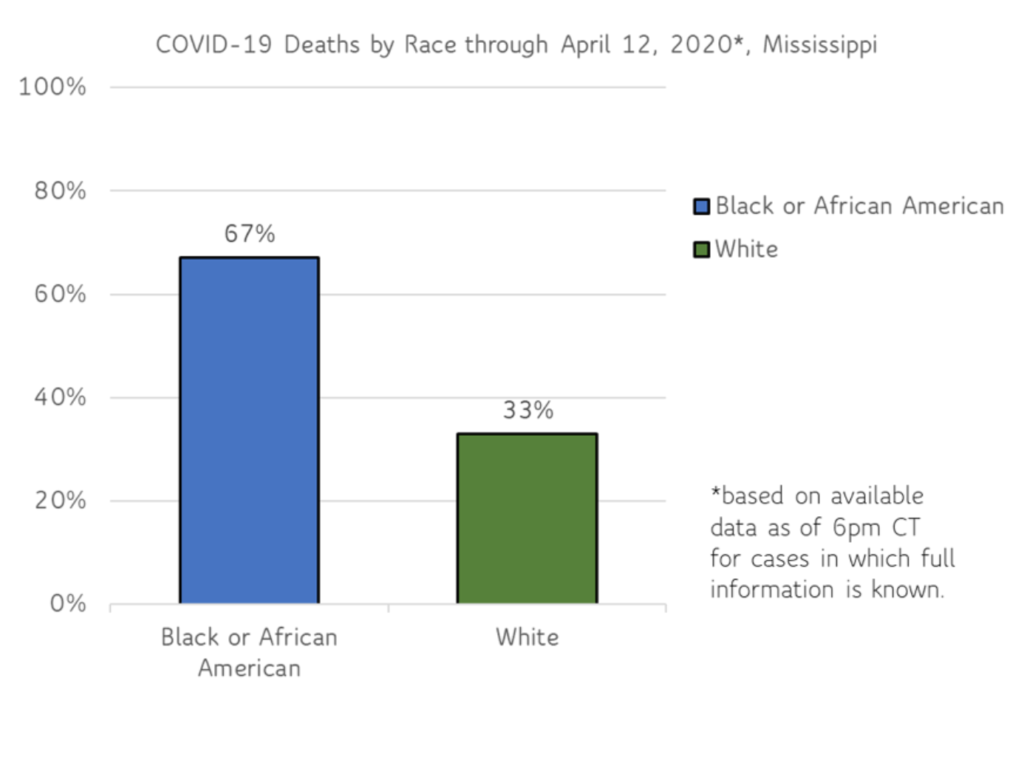Story by DeAndria Turner
Broadcast journalism student
dtturne2@go.olemiss.edu
When you break down the number of COVID-19 deaths by race, the results are startling. As the virus continues to rip through the state and the nation, black communities have been experiencing disproportionately high infection and death rates, including here in Mississippi.

Health care providers, like Latasha Burton, have been deemed essential to the workforce, so staying home is not an option for her and she said it’s scary.
“I’m the breadwinner. I have to be the one that takes the risk because if I don’t I won’t be able to feed my children,” Burton said.
Data from the Mississippi Department of Health shows that the coronavirus is disproportionately killing those in the black community, with 67% of deaths as of April 12. African Americans make up approximately 38% of the state’s population.
“This is troubling obviously,” said state epidemiologist Paul Byers.
Ole Miss Associate Professor of Sociology and African-American Studies Kirk A. Johnson said, if history is our teacher, then the most vulnerable will continue to bear the brunt of this virus.
“The fact that we don’t have equal access to these services. We don’t have equal access to affordable care. We don’t get the same response when we walk into the doctor’s office or an emergency room as white people do explains the reason why we are sicker overall, and we are sicker in the particular case with the virus,” said Johnson.
He said the only way things will change is to include those affected in the decision making.
“It’s not just about whether you have an M.D. or a Ph.D. It’s about whether you really understand what their problems are, and I think the people who best understand what the problems are are people who are grappling with them,” Johnson said.
Researchers also point to the number of minorities who are working essential jobs in grocery stores and fast-food restaurants, as aides in health care and in janitorial services. Their frequency of contact with members of the community may be higher and more hazardous than people of other races.
For now, Burton is still going to work and counting on protective gear and common sense to keep her and her family safe, but she worries it may not be enough.
“For us to have to go out here every day and not knowing is hard by itself,” said Burton.
